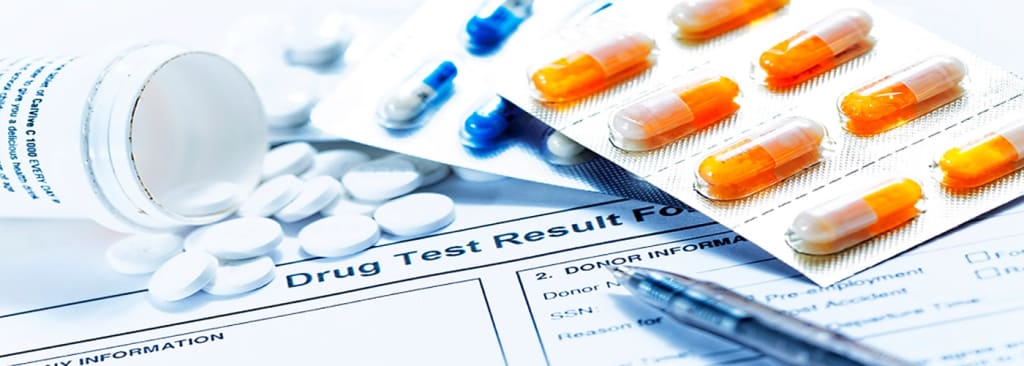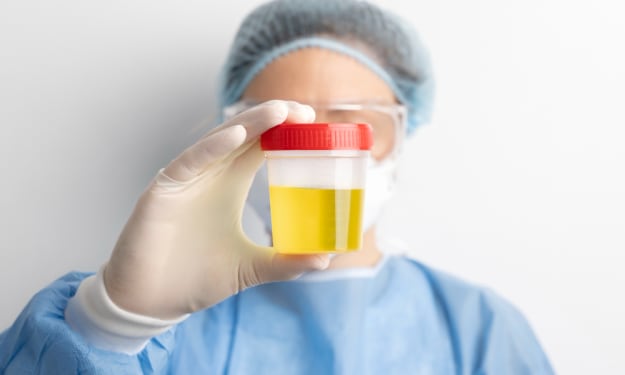What is the most common false positive drug test?
Unraveling the Mystery of False Positives in Drug Testing

Introduction
Drug testing is a common practice in various sectors like employment, sports, and law enforcement. However, it's crucial to understand that drug tests are not infallible. A significant concern in drug testing is the occurrence of false positives, where the test incorrectly indicates the presence of illicit drugs.
In this blog, we will delve into what constitutes a false positive in drug tests, the most common causes, and ways to address this issue.
What is a False Positive Drug Test?
A false positive drug test occurs when the test detects the presence of a drug or its metabolites in an individual's sample (urine, blood, saliva, or hair) despite the person not having consumed the drug. This can lead to a variety of consequences, from employment termination to legal implications, making it a matter of serious concern.
The Most Common False Positive: Ibuprofen
Among the myriad of substances that can cause false positives, one of the most common is ibuprofen, an over-the-counter anti-inflammatory drug. Ibuprofen can sometimes trigger a false positive for marijuana (THC), benzodiazepines, or barbiturates in urine drug tests. This is due to the similarities in the chemical structures and the way the body metabolizes these substances.
Other Common Causes of False Positives
1. Cold Medicines and Decongestants: Some over-the-counter cold medicines contain pseudoephedrine, which can result in a false positive for amphetamines or methamphetamines.
2. Antidepressants: Certain antidepressants, particularly tricyclic antidepressants, can falsely indicate the presence of LSD or amphetamines.
3. Antibiotics: Some antibiotics, like Levofloxacin or Ofloxacin, can cause false positives for opiates.
4. Poppy Seeds: Foods containing poppy seeds can lead to false positives for opiates, as poppy seeds come from the same plant that produces opium.
5. Diet Pills: Some over-the-counter diet pills contain phentermine, which can be mistaken for amphetamines.
6. HIV Medication: Certain medications used to treat HIV may result in false positives for marijuana.
Addressing the Issue of False Positives
Confirmation Testing
To mitigate the issue of false positives, confirmation testing is crucial. If an initial drug test yields a positive result, a confirmatory test, usually a Gas Chromatography-Mass Spectrometry (GC-MS) test, should be conducted. This test is more precise and can differentiate between substances with similar structures.
Disclosure of Medications
Individuals undergoing drug testing should disclose any prescription or over-the-counter medications they are taking. This information helps in interpreting the results more accurately.
Understanding the Test Limitations
Awareness about the limitations of drug tests and the potential for false positives is vital for both the testing authorities and the individuals being tested.
Conclusion
False positives in drug testing are a real concern and can have significant ramifications. Understanding the common causes, such as the consumption of everyday substances like ibuprofen and cold medicines, is crucial. Equally important is the implementation of follow-up confirmatory tests and a thorough review of an individual's medication history. By addressing these aspects, we can reduce the likelihood of false positives and ensure a more fair and accurate drug testing process.
FAQs
Q1: What is a false positive in a drug test?
A1: A false positive occurs when a drug test incorrectly identifies the presence of a prohibited substance in a person's sample, despite them not having consumed the drug.
Q2: Why is ibuprofen a common cause of false positives?
A2: Ibuprofen can cause false positives for certain drugs like marijuana, benzodiazepines, and barbiturates due to similarities in chemical structures and how the body metabolizes these substances.
Q3: Can eating poppy seeds lead to a positive drug test?
A3: Yes, consuming foods with poppy seeds can lead to false positives for opiates, as poppy seeds are derived from the opium poppy plant.
Q4: What should I do if I receive a false positive drug test result?
A4: If you receive a false positive, request a confirmatory test, such as a Gas Chromatography-Mass Spectrometry (GC-MS) test, and provide details of any medications or substances you have consumed that could have influenced the result.
Q5: How can I prevent false positives in drug tests?
A5: To minimize the risk of false positives, disclose all medications and supplements you are taking before the test and understand the substances that might influence the results.
Q6: Are all drug tests prone to false positives?
A6: Most drug tests have a risk of false positives, but the likelihood varies depending on the type of test and substances screened for.
Q7: Can antidepressants affect drug test results?
A7: Yes, certain antidepressants, especially tricyclic antidepressants, can falsely indicate the presence of LSD or amphetamines.
Q8: Is a confirmatory test more accurate than an initial drug test?
A8: Yes, confirmatory tests like GC-MS are more precise and can differentiate between substances with similar structures, reducing the chance of false positives.
Q9: Can over-the-counter cold medicines cause false positives?
A9: Yes, some cold medicines contain pseudoephedrine, which can result in false positives for amphetamines or methamphetamines.
Q10: What is the impact of false positives in drug testing?
A10: False positives can have serious consequences, including wrongful employment termination, legal issues, and personal distress. Accurate testing and awareness are essential to prevent these outcomes.






Comments
There are no comments for this story
Be the first to respond and start the conversation.